“I just sent four boats to Greece,” a calm voice boasts on the other end of the phone line. “I’ve got ten thousand dollars in my pocket.” His customers know him as Malik al-Behar (The King of the Shores) or simply as al-Khal (The Uncle), a 38-year old Syrian who has built a sizeable human smuggling operation here in the ancient Turkish port of Izmir.
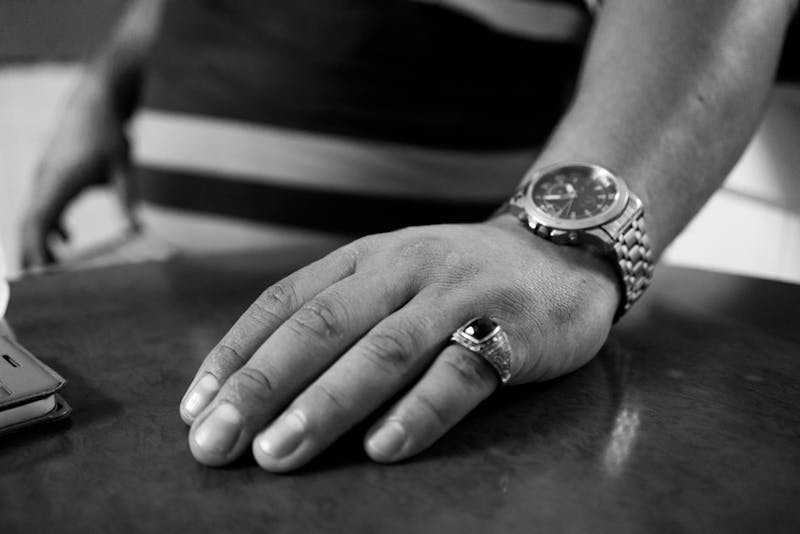
When we met al-Khal in late September, he was organizing two to three trips a day to the Greek island of Lesbos, about eight miles from the Turkish coastline. He fits 30 to 50 people a raft and charges $1,000 to $1,500 per person. Each crossing costs him between $10,000 and $15,000. In the past two years, he claims to have made more than $2 million.
With nearly 400,000 people arriving illegally in Greece this year, the refugee crisis has been good to him. And he is not alone: the underground economy of human smuggling is thriving. According to some calculations, there are up to 2,000 fellow smugglers in Izmir, while the trade on European territory is thought to employ up to 30,000 people.
We meet al-Khal at a café overlooking the beautiful bay in this, Turkey’s third largest city. He shows off some of his merchandise: fake Turkish, Syrian, and European ID cards, driver’s licenses, and passports. He assures us these documents sell for as much as several thousand Euros.
Before he was the King of the Shores, al-Khal was an officer in the Syrian military. In April 2012, he received orders to shoot at peaceful demonstrators on the outskirts of Damascus. He chose instead to defect, along with 50 of his subordinates, and join the Free Syrian Army in Homs. Once in rebel territory, he opened a weapons factory, which he says he still runs, supplying RPGs, GRAV missiles, sniper telescopic sights, Kalashnikovs, 9mm pistols, and other weaponry to a number of actors fighting in the brutal conflict. Al-Khal continues to fund an FSA brigade, though he considers the rebel forces to be in disarray and left the fighting behind in 2014 after suffering a serious injury in combat.
As we sip our Turkish coffees, al-Khal gets a call from an associate who informs him that 500 people trying to cross the land border with Greece close to Edirne have been turned back by Turkish police. He can’t resist a grin: A safe overland route would spell the end of his business.
Later he takes us for a walk through the central Izmir neighborhood of Basmane, where hundreds of refugees huddle on the sidewalks waiting for smugglers to take them to sea. On one corner, a young man is helping his elderly mother try on a bright orange life jacket sold by a street peddler. You can find ones like it at most of the stores in the area, even fashionable men’s clothing outlets. They are manufactured in Izmir and are not quite up to safety standards. Inflatable pneumatic tubes, waterproof pouches, and external smartphone chargers are also in good supply. Dingy hotels in Basmane offer a night’s stay at inflated prizes, although many people simply set up camps on the sidewalks, the squares, and the courtyard of the neighborhood’s central mosque. A handwritten sign in Arabic adorns a tree: “We buy Syrian gold.”
Several weeks after our conversation, al-Khal left Turkey for reasons that he would not disclose. He does, however, maintain that his business remains active and that he continues to “help the people” make their way to Europe. Our conversation from Izmir was edited for clarity and condensed.
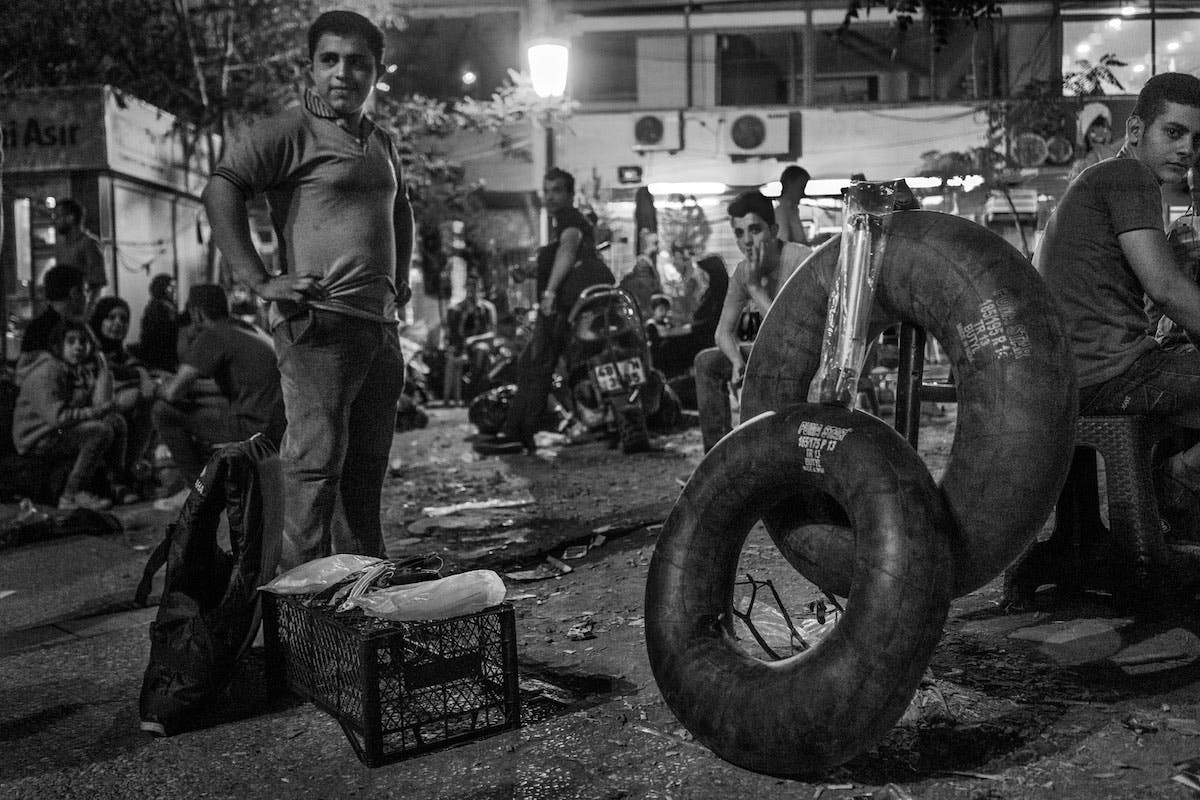
Mrie and Winograd: Why did you wait until 2012 to defect?
al-Khal: At the beginning, there was not so much serious killing. We were using other methods: tear gas and those types of things. It was only in 2012 that we started to get direct instructions to kill people.
M and W: Why didn’t you stay with the FSA?
al-Khal: The revolution is very chaotic. It is not organized. But this is not the main reason I left. The main reason is that I was injured and I was forced to go to Turkey to get treatment. When I was in Turkey, they closed the border and the roads to Homs and I couldn’t get back. So I started to get involved in the smuggling trade. My cousin was working in the business, so I was helping him. He used to have a boat to take people from Mersin [a coastal city in Turkey] directly to Italy. We organized nine trips, each time transporting around 150 people. We didn’t lose a boat.
M and W: How much did he charge per person?
al-Khal: Roughly $10,000 dollars.
M and W: Where is your cousin now?
al-Khal: In Germany. After my cousin left to Germany I had to leave Mersin, because the Turkish government started to clamp down on human smuggling there. After that I came to Izmir to start my business again.
M and W: Do you need to a pay off Turkish authorities or can you control the smuggling trade on your own?
al-Khal: The Turkish government doesn’t really get involved in this. But civilian individuals do get involved.
M and W: Like who?
al-Khal: The people who own the land that we use as point of departure for the boats. When you want to send a boat you have to first make a deal with the landowner. They get paid for every trip: $5,000, sometimes $6,000, sometimes $8,000.
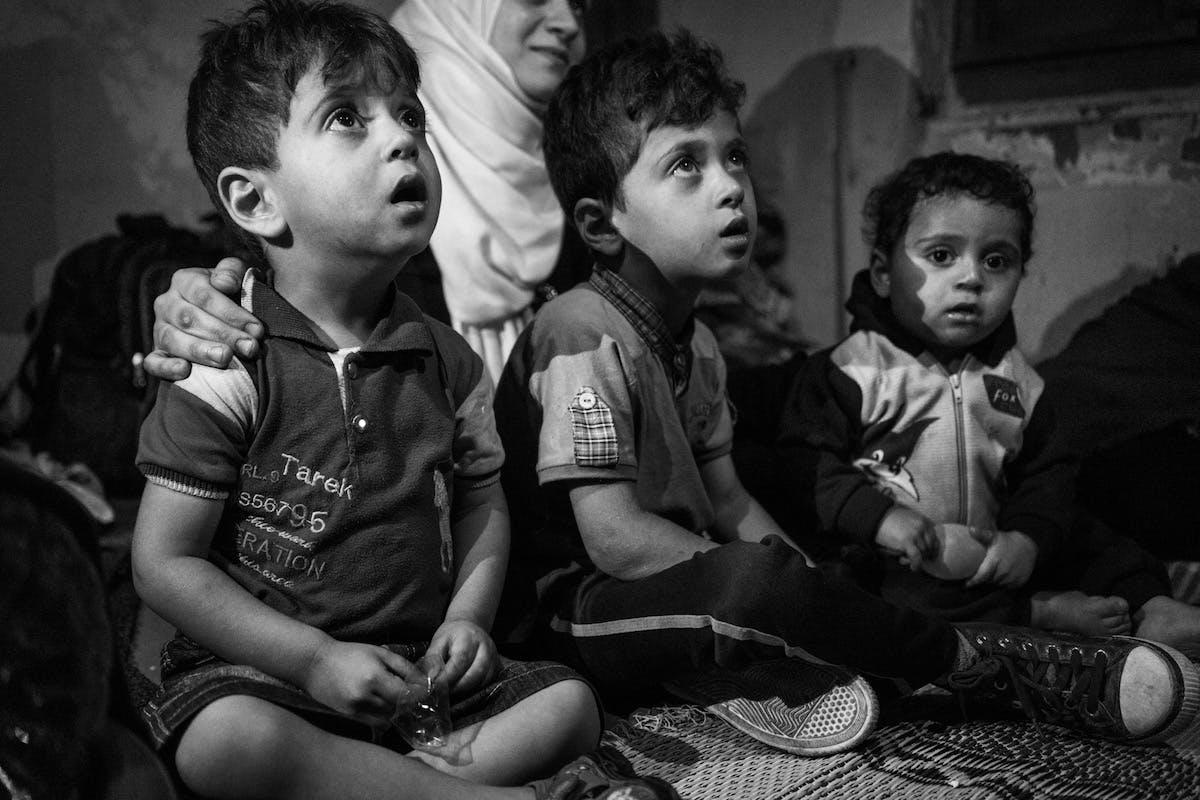
M and W: Tell me more about your expenses.
Al-Khal: My work is special. I can send you the messages I receive from my clients when they reach Greece. I am really honest with people. That is why I am very popular here and I get more than 1,500 calls a day. I have six phones. My employees answer all the phone calls. And by the way, while we are sitting here my bodyguards are all around us. I have thirteen men who are keeping an eye on this place right now.
I bring the rubber boats from Europe. The price, including the motor, is $8000 dollars. I know I can get a cheaper price, but I am concerned about the safety of my people. My reputation is the only thing I have. Other smugglers put 60 people on the boat. I try the number never to exceed 45. When it comes to safety, I don’t even trust my own people to tell me what is going on, I try to contact the refugees directly to ask them how many are going on the boat. Every trip costs me between $10,000 and $15,000. And I charge $1,200 for every passenger.
M and W: Have you ever run into any trouble with the Turkish authorities or the police?
al-Khal: Well, we try our best not to get involved with them. We try not to make them angry.
M and W: Have you personally ever had problems with the Turkish police?
al-Khal: I am in a position of management. I have my employees who take care of things. My employees are in charge of taking the migrants to the [departure] points and putting them on the boats. They are 35 in total, and I pay them $1,000 a month each. I have a translator, an accountant, bodyguards, people responsible for getting migrants on the boats, taxi drivers, people to arrange for the hotels. Sometimes I feel like I’m running a company.
M and W: So there is no way for us to see a boat depart?
al-Khal: Well, you could, but I will not be responsible for your safety. I’m sure the Turks would detain you if they saw you taking pictures there, because they treat those points as military territories. They are always protected by more than 50 armed men.
M and W: What kinds of people call you asking for your services?
al-Khal: All kinds. Everyone who is able to get asylum can go from here. For example, Iranians from Ahvaz, Iraqis, Pakistanis. People from any country where there is an armed conflict are able to get asylum and they can leave from Izmir.
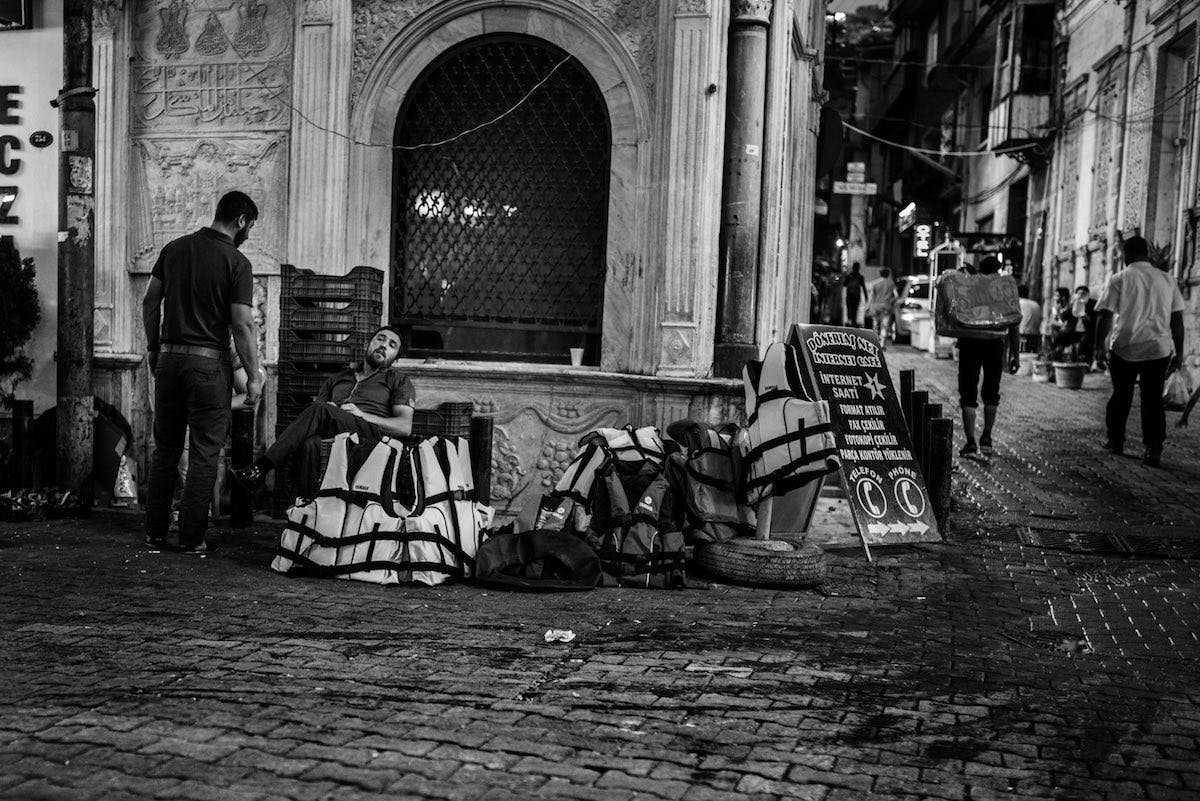
M and W: What was the oddest phone call you’ve received?
al-Khal: A Syrian journalist who used to be on TV all the time talking about how the rebels would defeat the government and how they would kill all the Alawites. One day he called me and asked me for help to go to Europe. He was receiving death threats. After he reached Hungary he called me again and he told me had been mugged and all his money had been stolen. So I sent one of my guys there to help him out.
We ask al-Khal what he thinks about the business in Bodrum, a main hub for smuggling in Turkey, 150 miles south of Izmir. This scenic coastal area—one of Turkey’s most sought after tourist destinations—is now tragically famous for the photograph of Aylan Kurdi, the Syrian boy whose drowned body washed ashore on a Bodrum beach earlier this summer.
al-Khal: I don’t recommend for anyone to travel from Bodrum because there are strong currents there. All the drowning has happened there. My point is very special and close to the Greek islands. It only takes 20 minutes to cross. I send my people to Mytilene (Lesbos). Bodrum, and the other points on the Aegean coast are very dangerous. On those points the boat is able to hold 40 men. But most smugglers there load almost 70 people onto the boats. But here in Izmir drownings are very rare. Most people who leave from Izmir reach Greek land safely.
M and W: How long do you think you will keep working as a smuggler?
al-Khal: I am doing other things. I am in the investment business as well. There are only ten days left in this season to organize maritime crossings. After those ten days I am going to focus more on my investment business. I am trying to open something new: like a mall or a big restaurant.
M and W: How much money do you have?
al-Khal: That is none of your business. After you finish recording I will tell you. I have so much money but I try to donate as much as I can to Syria. And I have other investments as well in several Turkish cities. I have small restaurants, one in Reyhanli, one in Antakya, as well as a car wash in Antalya.
M and W: Do you send children on the boats?
al-Khal: Yes, I try to help everyone. When I see someone whose money was stolen by a smuggler, I try to help him and send him for free.
M and W: Why do you think that the Turkish police aren’t trying to stop the smuggling?
al-Khal: In the beginning the Turkish government was getting lots of benefits because of the Syrian refugees: All the aid and funding for the Syrian people in Turkey used to come through the Turkish government. You have to understand also that some Syrians came to stay in Turkey. They sold everything they had and they came to spend it here in Turkey. It’s very expensive to live here.
Recently, Turks started to feel that the Syrian refugees were not so good for the country, especially after the bombing and chaos on the border. And the Kurds started to attack the Turkish government again. And all this chaos was due in part to the Syrian refugees.
So now that the Syrians have decided to leave Turkey, the Turkish government is not going to stop them. It’s a way out of the problem, especially now that the Turkish economy is taking a downturn. The Turkish government just turns a blind eye on the smuggling. There are 1.5 million Syrians registered as refugees with the government. But most Syrians here don’t have IDs and are not registered. So probably we have 2 or 2.5 million Syrians in the country. There is lots of chaos. If there is a bombing or something, they started to blame Syrians and start to attack them. That’s why the Turkish government is trying to reduce the number of refugees here so they can restore order, especially in the border towns.
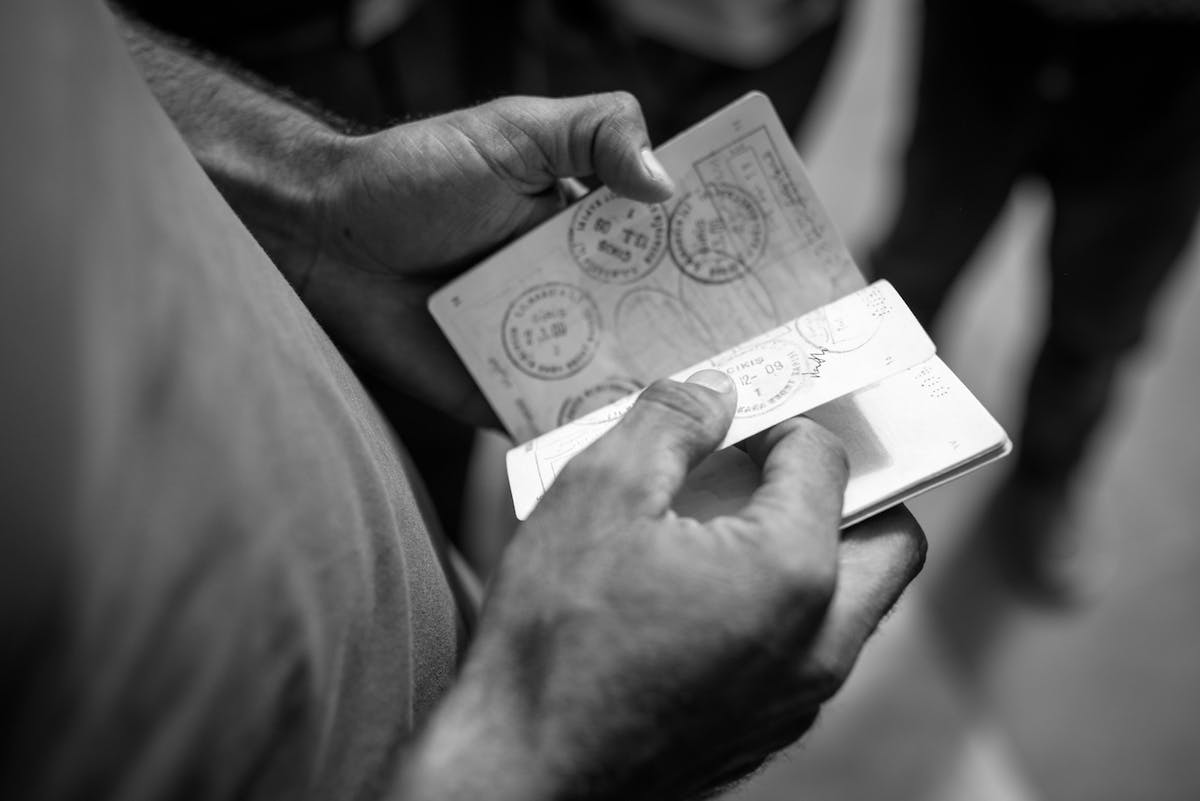
M and W: Don’t you think the EU is pushing Turkey to control their borders?
al-Khal: No. Europe wants the Syrians. In my opinion, Syria before the war had a very good and secure situation. You could travel anywhere in the country and no one would stop and ask for your ID. As a former police officer I can tell you that Syria was a very safe place. The West made this revolution; it did not come from the people. I don’t believe in the Arab spring. I don’t believe it was the people’s decision. I think this is the West’s plan to control the Middle East. Look what happened in Libya, which is divided now in three parts. And also look at Egypt: You can see the chaos everywhere in the country. Look at what is going on in Iraq. Look at the Middle East, how it is all divided now: This is exactly what the West wants. They want the big countries to be divided so that they will be easier to control in the future.
Now the West wants to empty Syria of its young men. And everyone wants to leave, which is understandable considering that most of Syria is now under the poverty line. So, sure, the people will leave and go to Europe after all these tempting salaries the West is providing. They are providing a house, salaries: freedom. What do you expect from people whose biggest dream before was a trip to Lebanon? Now they have a chance to go to Europe or Sweden. Yes, of course they will do it. Most of the Syrians who have made it are just sitting there doing nothing. They spend their time on Facebook and playing cards and in nightclubs with girls. At the end of the month they get money from the government.
M and W: Why are you helping people to go then?
al-Khal: I am helping them because if I didn’t, they would just find another smuggler. I am not able to change their minds. If all those pictures of the people drowning couldn’t change their minds, I am not able to change their minds. Look at my Facebook page: all my status updates are about how we should not leave our land, not go to Europe.
And there’s also the money of course.